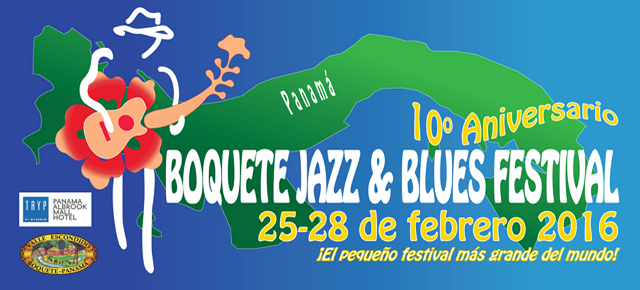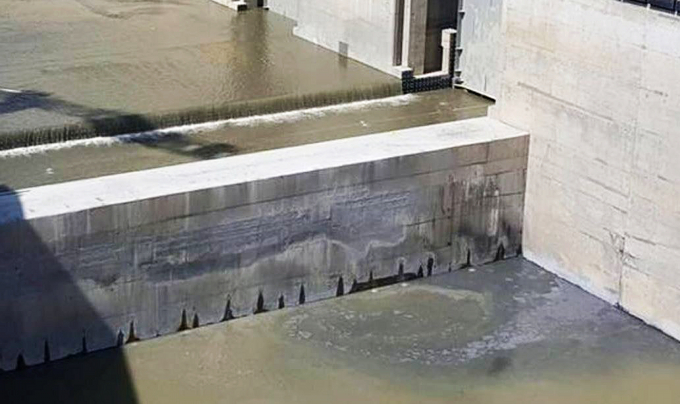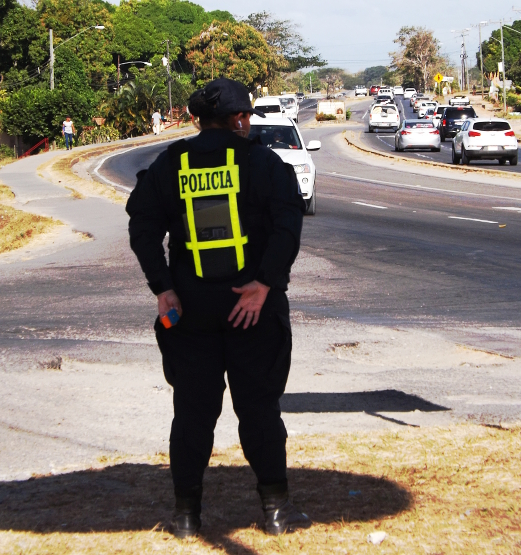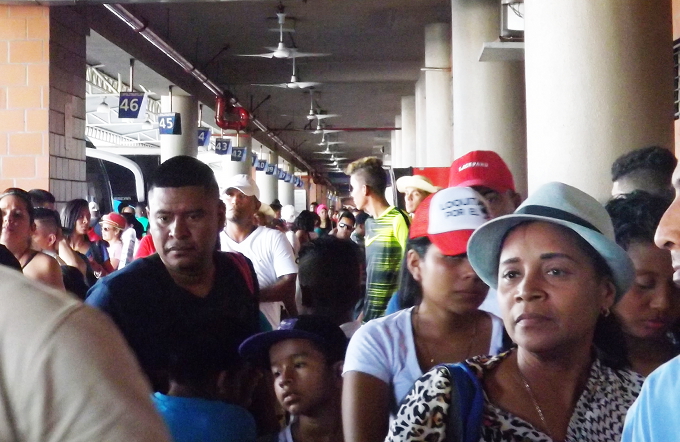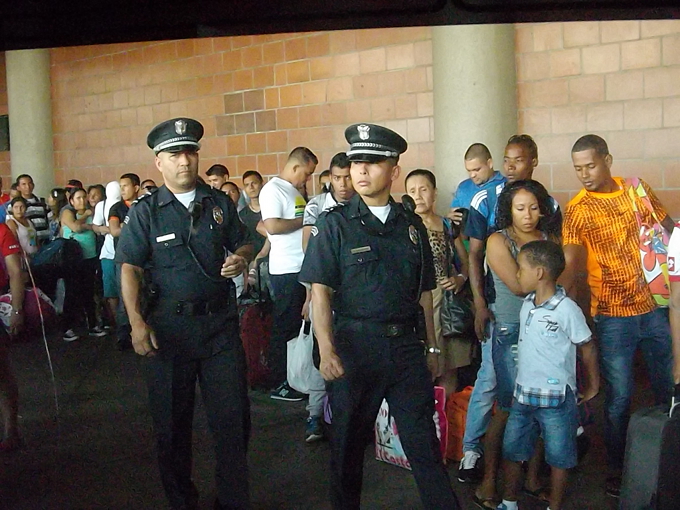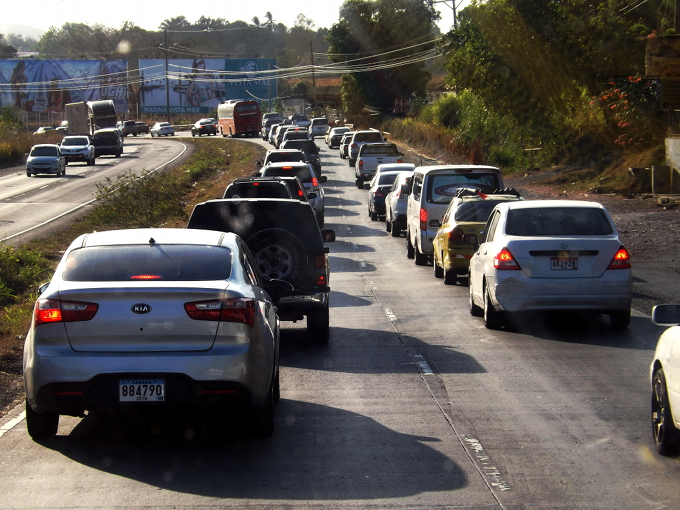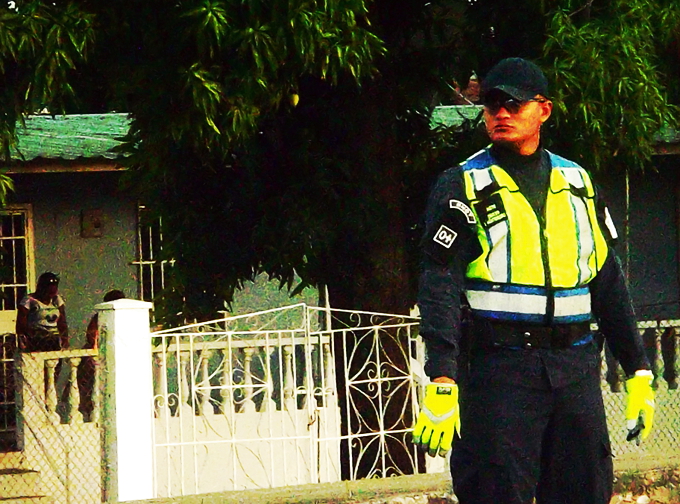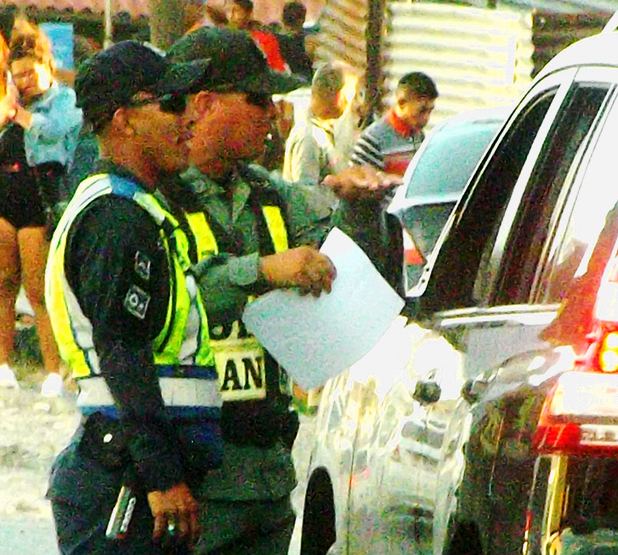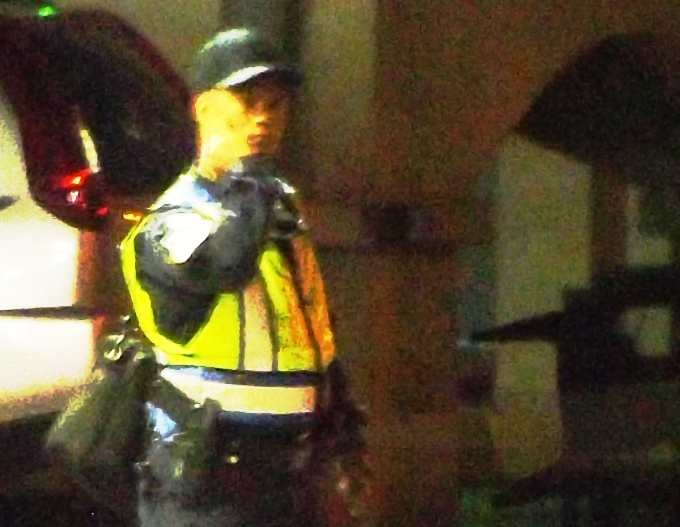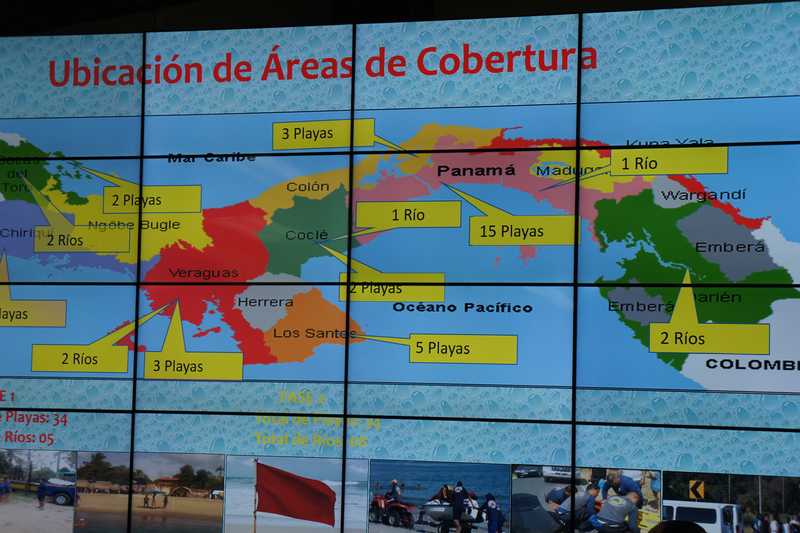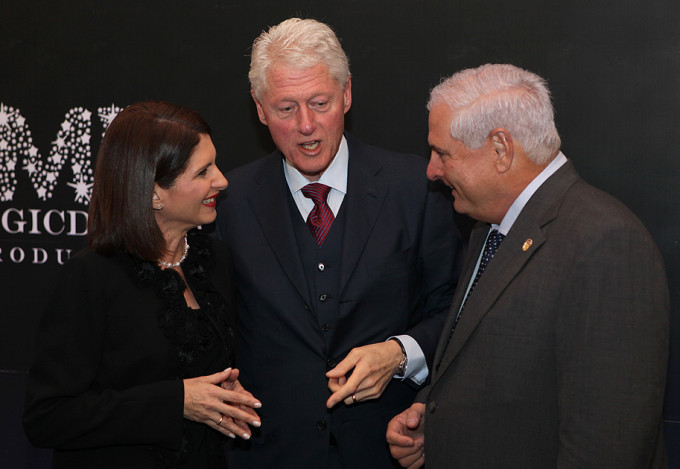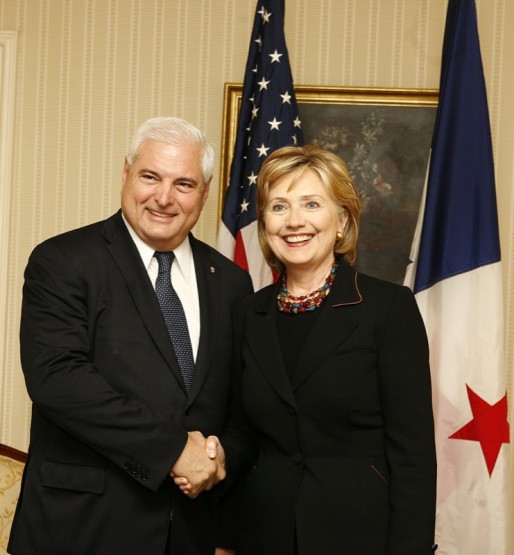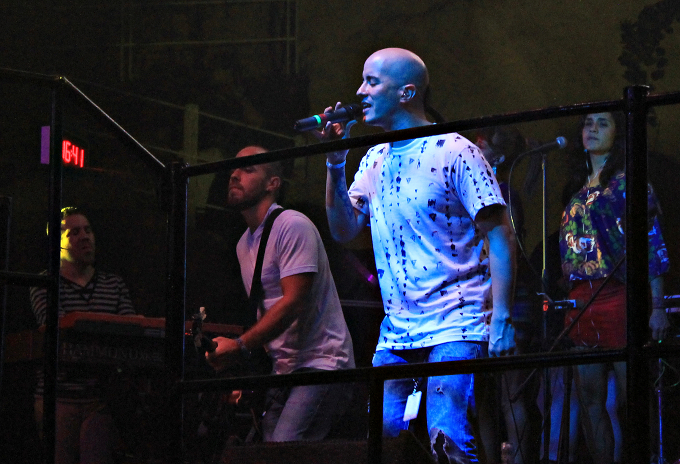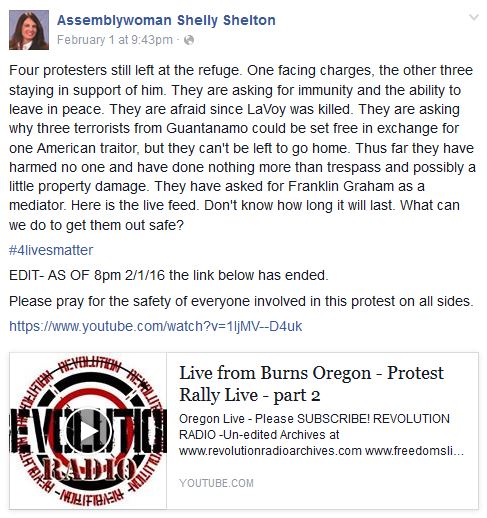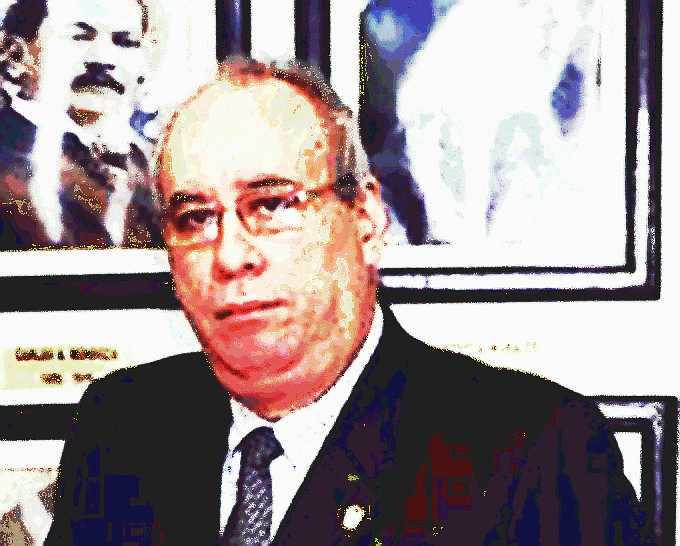 Carta abierta a H.D. Arrocha
Carta abierta a H.D. Arrocha
Panamá, 2 de febrero de 2016
Honorable Diputado
JORGE IVÁN ARROCHA
Presidente de la Comisión Permanente de Credenciales, Regla mento, Ética Parlamentaria y Asuntos Judiciales de la Asamblea Nacional
E. S. D.
Señor Presidente:
Declaraciones suyas confirman que algunas de las denuncias contra Magistrados de la Corte Suprema de Justicias, presentadas ante la Asamblea Nacional, han sido archivadas por lustros violán-dose el artículo 160 de la Constitución, aduciéndose supuesto incumplimiento de requisitos formales, inventados por la “Ley”.
Así las cosas, no causan sorpresa sus declaraciones equivocadas, recogidas el 11 de enero de 2016 por La Estrella de Panamá, en un excelente trabajo periodístico del profesional Ismael Gordon Guerrel:
1. “No puedo estar llamando a investigar a un magistrado de la Corte sino hay pruebas”.
2. “No puedo llamar a investigar a un magistrado sino hay elementos de prueba que realmente lo amerite”.
3. “La Constitución es clara. Contra los fallos de los magistrados no hay ningún tipo de recurso y ellos no son responsables por las decisiones que tomen en el ejercicio de sus funciones”.
Al parecer, señor Presidente, usted como otros, no se ha percatado de que lo que activa la función jurisdiccional de la Asamblea Nacional, es la sola presentación de una denuncia “contra el Presidente de la República y los Magistrados de la Corte Suprema de Justicia”, donde el artículo 160 de la Constitución no exige al denunciante que acompañe con su denuncia prueba alguna adelantada, cuya obtención le corresponde a la Asamblea Nacional a partir del inicio de la investigación que debe hacer inmediatamente para determinar si la denuncia da lugar al correspondiente juzgamiento; siendo que la Ley no es instrumento idóneo para ponerle cortapisas a la Constitución, en un afán desmedido según parece de volver ilusorio el derecho de presentar denuncias como autoriza el artículo 160 citado.
Observe, señor Presidente que el artículo 160 de la Constitución no incluye en su texto ninguna remisión a la Ley (v.g. “La Ley reglamentará esta materia”; “dentro de los precisos términos de la ley”; “en forma que establezca la Ley” “la Ley determinará”; “de acuerdo con la Ley”; etc.); porque de su contenido se deduce con claridad que el debido proceso se inicie con la presentación de la denuncia a la que sigue inmediatamente el trámite de investigación determinante de si da lugar o no el juzgamiento de que se trate, sin necesidad de agotar etapas de informe ni de votos de mayoría; es decir, que la Asamblea Nacional no esta facultada para deshacerse de una denuncia por consenso.
Así, las únicas leyes que puede decretar la Asamblea Nacional en esta materia, son aquellas que viabilizan la voluntad del Constituyente de remover de esos altos cargos a las personas infractoras de la Constitución y la Ley de manera expedita, porque la recta conducción del País, para la realización de sus fines y la buena práctica en la administración de justicia: honesta, imparcial, transparente, expedita y confiable, no se logran en manos de posibles delincuentes de cuello blanco que, de paso, habrían faltado a su juramento prestado ante Dios y la Patria de que acatarían la Constitución y las Leyes de la República.
Como usted conoce, el Artículo 160 de la Constitución, establece lo siguiente:
“Artículo 160: Es función judicial de la Asamblea Nacional conocer de las acusaciones o denuncias que se presenten contra el Presidente de la República y los Magistrados de la Corte Suprema de Justicia y juzgarlos, si a ello diere lugar, por actos ejecutados en el ejercicio de sus funciones en perjuicio de libre funcionamiento del poder publico o violatorios de esta Constitución o las leyes”.
Sin embargo , se observa que a pesar de la claridad de los indicadores en este Artículo 160, de cuál es la voluntad del Constituyente de mantener limpia la Corte Suprema de Justicia de infractores de la Constitución con toga de Magistrados, diversas generaciones de legisladores antes y ahora de diputados, por lustros, han pretendido burlarse de la voluntad del Constituyente por medio de veleidades legislativas, con el resultado de que tales infractores siguen impunemente en sus cargos y no obstante de que también conocen que la Ley no es instrumento idóneo para ponerle cortapisas a la Constitución (ver artículo 12 del Código Civil), como viene expresado.
EL Artículo 160 de la Constitución, sabiamente, le ordena a la Asamblea Nacional conocer de las denuncias que se presenten; es decir, de todas, porque no establece que sólo conozca de las denuncias acompañadas de prueba sumaria, de prueba del hecho o de elementos de convicción. Y, precisamente, no lo exige por cuanto la duda la resuelve el Constituyente a favor de los denunciantes, quienes actúan en defensa de la buena marcha del servicio público de administrar el Estado y la Justicia de manera eficiente, honesta, imparcial, transparente, expedita y confiable; y habido cuenta de que el País no necesita en específico a ningún “Presidente” ni “Magistrado”, menos si éste es un infractor de la Constitución y posiblemente un corrupto, cuando su actuación “judicial” conlleve la infamia de un arbitrario despojo de tierras, de dineros, de derechos, etc., como objetivo propio de la corrupción judicial.
Del mismo modo, a la presentación de la denuncia se concreta la obligación de juzgar al denunciado, “si a ello diere lugar”, para lo cual la Asamblea Nacional debe remitirla inmediatamente a la respectiva Comisión Permanente y el Pleno de aquella debe designar el Fiscal del caso, en el entendimiento de que la admisión de la denuncia es obligatoria y no potestativa, sin lo cual no podría determinar “si a ello diere lugar” para juzgarlos. (Artículos 160 y 201 de la Constitución; Artículo 12 del Código Civil), salvo en los casos en que ha cumplido su deber de investigar y así resultare.
En otras palabras, señor Presidente, las denuncias, amén de que legalmente no requieren formalidad ni solemnidad alguna y el denunciante no es parte en el proceso ni está obligado a probar su relato, no requieren tampoco exámenes previos sobre admisión o inadmisibilidad ni de informes ni de ser sometidos a votos de mayoría o consenso. Observe que la Asamblea Nacional no es una «sociedad anónima» ni sus miembros “accionistas”, que pueda decidir en votación y selectivamente cuáles denuncias admite y a cuáles no.
Simplemente, por cumplidas las etapas de presentación de la denuncia y de remisión a la Comisión Permanente que usted Preside, luego de la designación del Fiscal del caso y éste ha finalizado todas las investigaciones en las que debió recabar las pruebas favorables al imputado (v. gr. el hecho no constituye delito; el hecho no se cometió durante el ejercicio de sus funciones; cesó en el cargo; etc.) y las pruebas desfavorables (v.gr. las que sirven para acreditar el hecho punible denunciado y sus circunstancias), siendo permitidas o lícitas, es cuando se inician las votaciones; observándose que aunque las pruebas fueran concluyentes de la culpabilidad del imputado, aun así, la sentencia condenatoria dependerá del dislate de un voto mayoritario y algunas veces del voto por simple simpatía de las dos terceras partes de los miembros de la Asamblea Nacional que, de no obtenerse, el imputado será declarado no culpable. Este dislate legislativo desafía la voluntad constituyente, según el Artículo 160 de la Constitución, porque es como si no lo hubiera juzgado, habiendo dado lugar para ello, según las pruebas.
Ahora bien sus declaraciones recogidas en La Estrella de Panamá de 11 de enero de 2016, no son únicas como dislates. Por ejemplo, si consulta El Panamá América de 23 de noviembre de 2005, se encontrará con lo siguiente:
“El esperado archivo de la denuncia presentada por 18 grupos de la sociedad civil para que se investigara lo actuado por un grupo de Magistrados de la Corte Suprema de Justicia señalados por su colega Adán Arjona como responsables del pronunciamiento de sentencias irregulares merece la repulsa del pueblo panameño.
Argumentar que los denunciantes no son parte afectada por los fallos es un tremendo disparate, habida consideración que los mismos comprometen la credibilidad del máximo tribunal y la buena fe de sus miembros en el recto cumplimiento de sus deberes.
Tampoco es valido que no hay prueba sumaria…………”
Tal como puede apreciar, señor Presidente, esa perversa creatividad para no investigar a Magistrados posiblemente corruptos por la Asamblea Nacional y el cuento de la prueba sumaria, es de antigua data, lo vuelven a usted poco original y que, ayer como hoy, se violaba impunemente el artículo 160 de la Constitución, exigiéndose requisitos constitucionalmente inexistentes e impropios a la naturaleza de una denuncia.
En cuanto a su declaración de que “no puedo llamar a investigar a un Magistrado si no hay elementos de prueba que realmente lo amerite”, no pasa de ser un simple sofisma, porque para llamarse a investigación a un magistrado sólo es necesario que se haya presentada una denuncia, ya que las pruebas las debe recabar inmediatamente después el Fiscal designado por la Asamblea Nacional, a fin de que ésta determine su juzgamiento, “si a ello diere lugar” (artículo 160 de la Constitución y 12 del Código Civil). Y, en materia de denuncias presentadas, tiene usted varias pendientes y otras mal archivadas y que las debe reactivar, para someterlas al trámite correspondiente.
En este estado, le solicito formalmente la reactivación de todas las denuncias archivadas sin la práctica de las investigaciones correspondientes, aduciéndose supuesto incumplimiento de requisitos formales, a pesar de que, como usted sabe, las denuncias al no requerir formalidad ni solemnidad alguna, se entienden admitidas desde su presentación, según lo previsto en el artículo 160 de la Constitución.
También es equívoca y desafortunada su declaración de que “la Constitución es clara contra los fallos de los magistrados no hay ningún tipo de recurso y ellos no son responsables por las decisiones que tomen en el ejercicio de sus funciones”.
Los artículos de la Constitución no se interpretan aisladamente sino uno con otros. Por ejemplo, el artículo 206 se interpreta conjuntamente con el artículo 210 de la Constitución; de modo que, cuando en su actuación los magistrados están sometidos a la Constitución, el resultado es una sentencia y no así, cuando actúan por encima de la Constitución mediante actos violatorios de ésta en que el resultado es un hecho arbitrario y punible. Así ante esa realidad, la Asamblea Nacional no ha cumplido con el deber de la República de Panamá de “desarrollar las posibilidades de recurso judicial” (vg. reconsideración), que permita impugnar la parte motiva de la actuación, siendo ésta el lugar donde se refugian para perpetrar sus malas acciones y hoy no hay manera de atacarla, porque en este supuesto los magistrados no reconocen el recurso de reconsideración. De este modo, al quedar firme la resolución que decide el recurso, entonces sí, se concluye el caso mediante una decisión final, definitiva y obligatoria.
En cuanto al resto de su declaración de que los magistrados de la Corte “no son responsables por las decisiones que tomen en el ejercicio de sus funciones”, sólo tienen el mérito de ser un disparate difícil de superar.
En diversas partes del ordenamiento jurídico se establece que los magistrados de la Corte responden penal, civil y disciplina-riamente, a pesar de la derogación del artículo 200 del Código Judicial. En cambio, usted le confiere licencia, para delinquir impunemente en el despojo de tierras, dineros y derechos que perpetren estos magistrados contra algunos de los desprevenidos usuarios que se vean necesitados a usar semejante sistema “judicial”; en donde, por lo visto usted no es de los que se empeñará en subsanar estas graves irregularidades mediante los ajustes legislativos que se requieran.
(Cfr. En el diario La Prensa de 26 de octubre de 2014, el Magistrado Harry Díaz dio a conocer en denuncia pública que en la Corte Suprema se venden fallos y se archivan expedientes, lo que nunca desmintió, ni él ni nadie y con pruebas. Desde entonces los “fallos de los últimos 10 años de alto perfil, están marcados por la sospecha de ser el producto de una compra venta”, tomándose en cuenta el testimonio de la Jueza ANA ZITA ROWE LÓPEZ, al hacer su análisis introductorio a la Ley 53 de 2015: “ha transcurrido una década desde la crisis de legitimidad de las autoridades judiciales, asociada a las serias denuncias por venta de fallos”. (Ley de Carrera Judicial, Cultural Portobelo, 2015. Pág.9)
Uno de los graves problemas en este País es el de que a los miembros de la Asamblea Nacional no les preocupa dictar leyes que contrarían la letra y el espíritu de la Constitución. Y por ello, no causa extrañeza que hayan “legislado” en el sentido de hacer depender la culpabilidad y condena de un magistrado de la Corte más del voto mayoritario que de las pruebas que lo vinculan con la comisión del hecho punible denunciado.
Es preocupante que, a nivel de la Corte Suprema, la Asamblea Nacional no haya cumplido a cabalidad con sus atribuciones constitucionales, al menos así:
1. En su función legislativa, ha dictado leyes para el fraude procesal, alentando la corrupción judicial.
a. Por ejemplo frente a la admisión o inadmisión arbitrarias, la parte afectada en la formalización de un recurso de casación no tiene defensa, pues, la “ley” establece que la resolución ilegal es irrecurrible. La orden de corrección depende del capricho de los magistrados.
b. El artículo 2568 del Código Judicial patrocina la colusión entre el Pleno de la Corte y el demandante; pues, aunque se trata de una acción pública, las demás personas afectadas o interesadas no pueden intervenir, etc.
2. En su función judicial, se esmera en “legalizar” pretextos, para no enjuiciar a magistrados señalados de ejecutar actos violatorios de la Constitución y de las Leyes de la República.
3. En su función administrativa se dejó arrebatar ciertas funciones trascendentes como las siguientes:
a. La de nombrar comisiones de investigación en cualquier asunto de interés público, como es la mora judicial, con vista a que la separación de poderes no es absoluta y la independencia judicial es sólo para el momento de la toma de decisión.
b. La de citar o requerir a un magistrado de la Corte, con fundamento en que aprobar y ratificar lo hecho por otro, son sinónimos.
Ese desgreño legislativo ha sido aprovechado por algunos magistrados para decidir arbitrariamente, por ejemplo, que un hecho inconstitucional es constitucional¸ que pueden convertir al Tribunal constitucional y antojadizamente en un Tribunal de tercera instancia de la jurisdicción penal o civil; que pueden volver bienes de uso público en bienes de propiedad de particulares; cambiar una doctrina a su conveniencia para favorecer a políticos, empresarios, jueces, etc. “constitucionalizar” partidas circuitales, dar órdenes a la jurisdicción civil, por medio de un recurso de inconstitucionalidad, etc.
Todo esto seguirá igual, señor Presidente hasta tanto el Pueblo logre establecer en la Constitución que el Pueblo juzgará a los diputados y a los magistrados de la Corte mediante el sistema de juicio por jurados; y que el Estado tiene acción imprescriptible para recuperar todos sus bienes que hayan salido indebidamente de su patrimonio; salvo claro está, que la Asamblea Nacional se decida por ejercer plenamente sus funciones constitucionales y en calidad de ser el primer Órgano del Estado, como es.
Atentamente,
HERNÁN A. BONILLA G.
Cédula 4-64-61
El autor es abogado.
~ ~ ~
Estos anuncios son interactivos. Toque en ellos para seguir a las páginas de web


